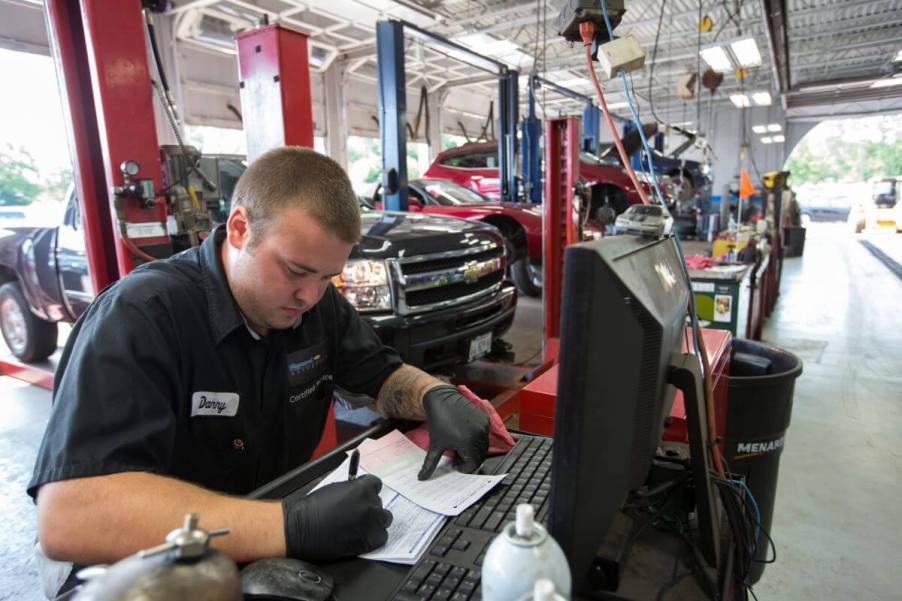
How Much Do Dealerships Charge For Labor?
Is taking your vehicle to the dealership for service ever a good idea? Depending on the problem, a dealer can be an easier way to maintain your vehicle. However, they also charge a lot of money to repair even the simplest of problems. One of the main reasons it costs so much to have your car fixed by a dealer is because of the labor costs. How much do dealerships charge for labor? Additionally, is the maintenance provided by dealers worth paying more for the labor costs?
Not all dealerships are the same
If you’re taking your car to a local dealer for service, the price isn’t going to be the same as someone else’s. Many factors go into pricing. Not only can parts cost different amounts in different places, but so can labor.
According to Motor.com, the cost of dealership labor is heavily affected by the factors of inflation and technician pay, dependent on the availability of skilled workers in the industry. For example, in certain states, the average wage might be higher for their employees, or even a statewide minimum wage could be higher. Therefore, the dealer will charge more per hour for your vehicle.
Other factors that can determine the labor rate are location, shop type, and the make and model. Cities might charge more than suburbs, independent shops will often charge less than dealers, and more expensive cars require more expensive labor. Buying a BMW means paying a lot for every part required for any repair. The same goes for a particular make or model that’s more difficult to work on than other vehicles.
What is the average dealership labor rate?
On average, a dealership will charge between $100 and $200 per hour for labor. As previously mentioned, you should expect a dealer to cost more than an independent repair shop. The price of going to a dealer can sometimes be worth it, depending on the problem. Most of the cost comes from labor when getting service performed in any location. Most companies, including dealerships, don’t severely overcharge for parts but will certainly hit you with a high labor rate.
Some will automatically tack an hour onto any fix, even if it only took 20 minutes. However, it isn’t entirely their fault. A dealer service department is charged with getting as many customers in and out as possible throughout the day. It has to hit goals and deadlines and, of course, be the most profitable part of a dealership. I worked at a dealership for many years, and in my experience, the automaker provided the labor rate. That’s also why seeking maintenance from a luxury brand is usually more expensive than a non-luxury automaker like Toyota or Ford.
Is dealership maintenance worth it?
Is paying a dealership to repair your vehicle worth the extra cost? It will almost always cost more to visit a dealer for maintenance. The value of a dealer comes from its genuine parts and warranties. Every dealer who makes a repair has to do so correctly, up to code, legally, and using genuine OEM parts from the brand. That means if there are more problems to follow, the dealer will take care of them. It also means parts have warranties and can be replaced again for free for a certain period.
Lastly, there isn’t any shady business going on behind the scenes. A dealer will break down every cost and charge for you on the bill if asked. An independent shop can easily hide things, lie about extra repairs, and try to empty your wallet unnecessarily. We’re not saying every OEM-partnered dealership is perfectly trustworthy, but they’re held to a much higher standard by the manufacturer than independent shops, who answer to no one.
How much is dealer labor for car repairs?
In conclusion, dealerships usually charge roughly between $100 and $200 for labor. However, many things go into determining the cost. Location, automaker, and make and model can change how much it costs to fix a vehicle. For the most part, service departments in dealers make their money from labor, so expect to pay a lot. Luckily, there are benefits to dealer maintenance instead of independent shops. Primarily, peace of mind that most dealers aren’t screwing you (if you don’t count high labor costs).





